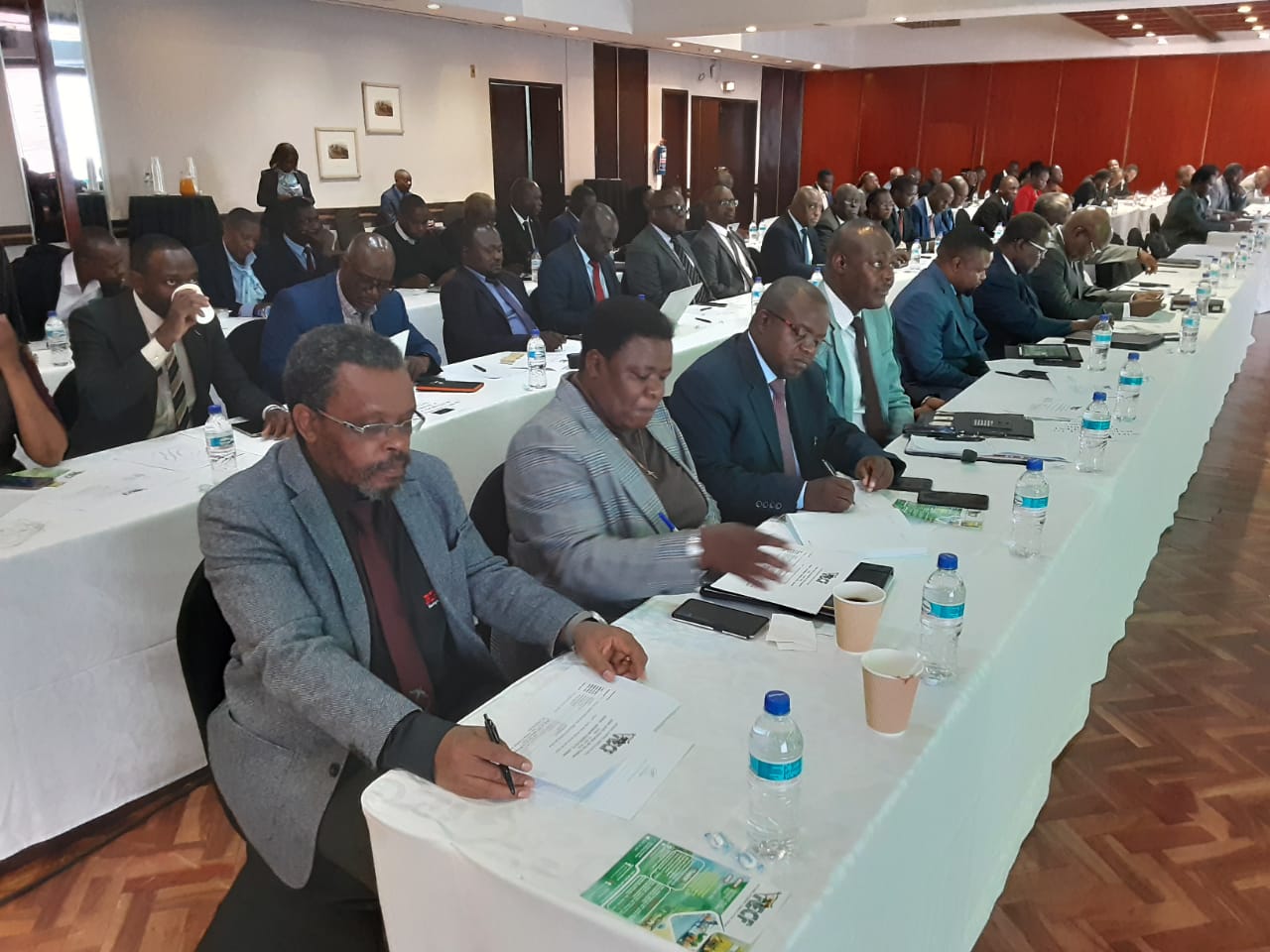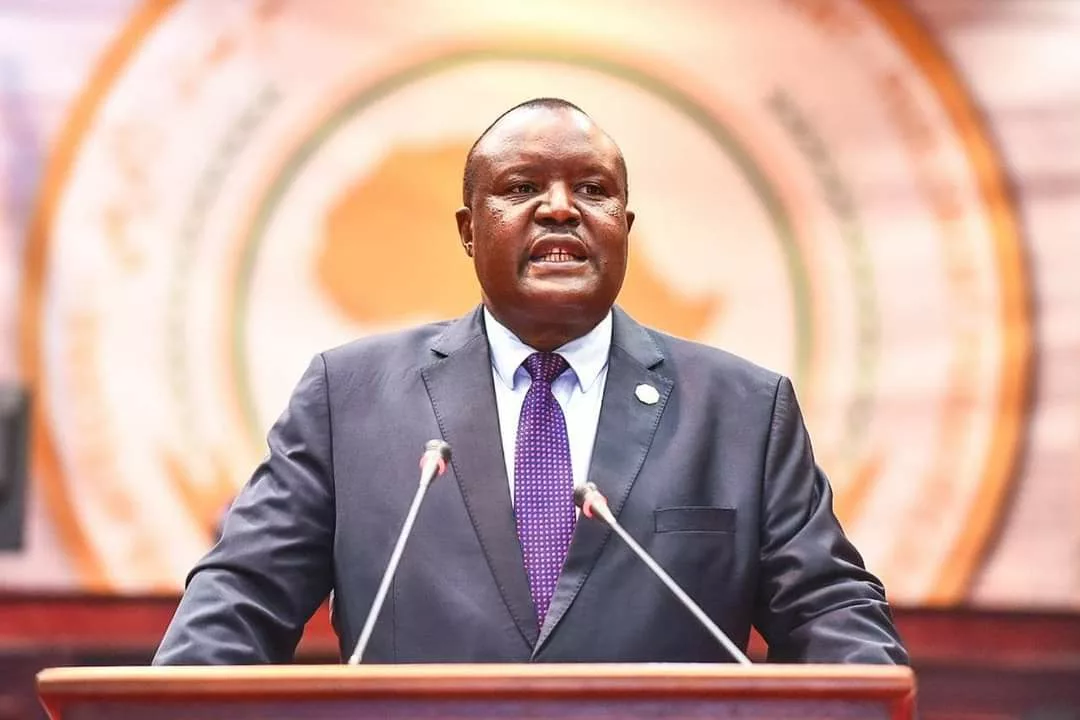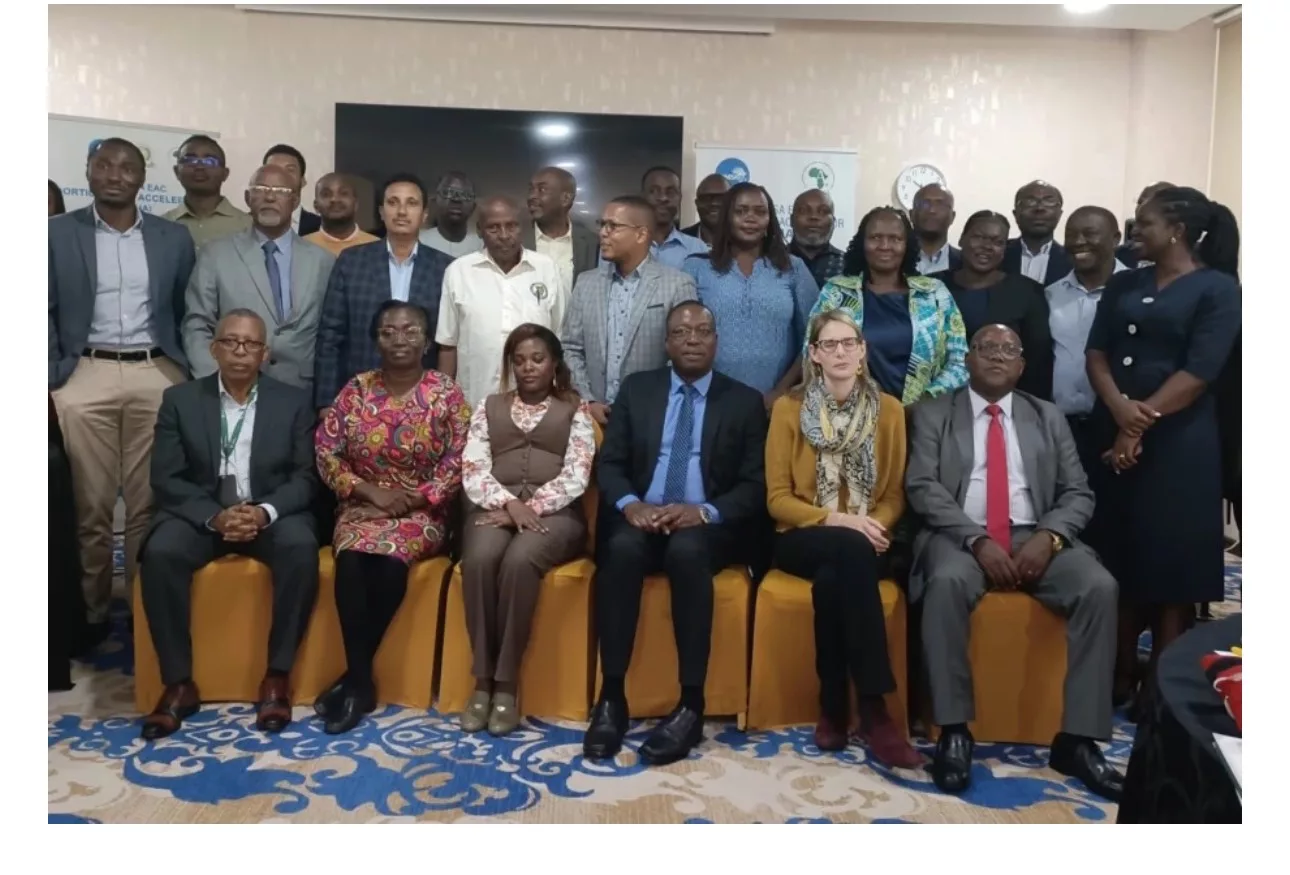The Government remains committed to the maintenance of macroeconomic stability, preservation of the purchasing power of the Zimbabwe dollar, and restoration of trust and confidence in the economy.
This emerged at the high-level dialogue meeting on the economy that officially opened by Dr. Misheck Sibanda, the Chief Secretary to the President and Cabinet and NECF National Co-Chair that was organised by the National Economic Consultative Forum (NECF) and held at the Rainbow Towers Hotel in Harare on 31 May 2023.
In a presentation made on his behalf, Mr. George Guvamatanga, the Secretary for Finance and Economic Development, alluded to a number of policy measures that the government is taking to stabilise the economy.
He said the measures introduced by Government on 2 May and 29 May 2023 have largely focused on ensuring the introduction of non-inflationary financing of external liabilities, allowing for increased foreign currency trading on the formal market, protecting the local currency, and increasing its usage in the economy.
“Increasing the retention of domestic foreign currency sales to 100% has resulted in domestic businesses accessing more foreign currency from the market and this potentially translates into additional US dollar deposits in the banking system.
The adoption of all external loans by the Treasury is well underway and will result in all external liabilities being funded transparently through the National Budget. The lifting of all restrictions on the importation of basic goods has promoted competition thereby resulting in a reduction in prices, and the promotion of the use of domestic currency by Government Agencies is expected to further increase the demand for the local currency,” Mr. Guvamatanga said.
Speaking on the same occasion, Mr. A. C. Nyati, the President of the Zimbabwe Commercial Farmers Union said the agriculture sector has grown from 3.2 billion USD to 5.2 billion USD over the period 2021-2022 reaching the target set for 2025 in half the period. In the 2021/22 season, the sector grew by 32%, contributing 7% towards GDP.
“Several accomplishments have been noted in the Zimbabwe agriculture sector as productivity has been boosted. Through the government effort, there is evidence of Increasing investment through the Pfumvudza facility and the Agro-yield that has been running. The Pfumvudza came in as a climate change mitigatory measure that has seen 2 million households being reached thereby improving production as inputs were supplied. Despite the scheme being limited to strategic crops, significant contributions have been realised under maize production with the 2021/22 production being as high as 2.9m MT surpassing the 2.2m MT national requirements.
“The presidential wheat scheme has also led to the nation reaching self-sufficiency for the first time in years as this programme managed to take on board even the smallholder irrigation farmers taking up 80 883 ha. The nation has also experienced an increase in tobacco production where the number of farmers producing tobacco increased significantly with the area devoted to the golden leaf also increased by more than 5000ha,” he said.
Zimbabwe through the interventions made by the government, private sector, and development partners has experienced an increase in milk production by about 14% which is a major boost to the economy as this not only impacted domestic consumption but has reduced the imports requirements by more than 17% since the inception of Transforming the Dairy value chain programme under the ZAGP. Still on livestock, major achievements have been realised with reduced prevalence of January disease thereby marking a huge boost in the meat industry which also contribute to around 35% of Agriculture’s GDP contributions.
Implementing policies that promote agriculture has been much appreciated. The government through its arms has been promoting production through the input side support schemes. More to that the introduction of USD part payments of 70% for strategic crops has restored confidence to farmers and hence boosted production significantly. This has since been supported by the scrapping of the 15% retention on locally traded agricultural commodities hence bringing ease of doing business and promotion of the banking sector.
Mr. Mike Kamungeremu, the President of the Zimbabwe National Chamber of Commerce (ZNCC) appreciated continuous efforts by the Government of Zimbabwe to stabilize the exchange rate and the macroeconomic situation.
“Zimbabwe’s economy is currently at a crossroads and there is need for collective efforts by all stakeholders to define a sustainable economic equilibrium without any blame game. In our view, some of the recent measures announced by Treasury agree with what the private sector has been alluding to all along, that the market distortions do were originating from an auction system which was not effectively determining a realistic, optimal and market driven exchange rate, resulting in an overvalued Zimbabwean dollar which was not fostering allocative efficiency.
“Market distortions were also arising from the surrender retentions which were being funded through the central bank, and Treasury has since indicated that it will be now funding the 25% surrender retention “to eliminate the creation of additional money supply.” The Chamber welcomes efforts by Treasury to continuously engage stakeholders and coming up with measures to address the current economic challenges,” Mr. Kamungeremu said.
He added that the Chamber welcomes some positive measures announced by authorities, which include the reduction of IMT tax for local interbank foreign transactions and POS to 1%, tracing gold origins to avoid conflict minerals, payment of customs duty in local currency, among others.
“ZNCC also takes this opportunity to share its insights on the possible implications of some of the policy pronouncements by authorities, and proffer recommendations to address the undesirable economic consequences. The lack of full implementation of the corrective measures would entail that both the Government and the private sector representatives would convene once again to discuss the issues affecting the economy,” he added.
Mr. Denford Mutashu, the President of the Confederation of Zimbabwe Retailers (CZR) said there is a need for the creation of more demand and space for the local currency.
“A USD environment will be costly for Zimbabwe and remember we don’t print the USD. A local currency comes with monetary and fiscal policy formulation and implementation sovereignty. The government also has a role in providing percentage rations to pay its contractors and suppliers for example 70% local currency and 30% foreign currency,” he said.
While CZR welcomes and endorses new measures introduced by the government to curb price escalations and reduce speculative and forward pricing by value chains, it has serious reservations about the reduced activity at the Forex auction system as this had tremendously assisted Zimbabwe’s private sector growth, productive sector retooling, machinery and equipment acquisition, and raw materials sourcing. CZR submits that the auction remains active.
Government should intervene and come up with an instrument/facility aimed at lessening the plight of ordinary people to access mealie meals, sugar, cooking oil, etc. These can be given quantity targets per month among others. The market has turned into a jungle with formal trade under threat. CZR maintains that, while there are challenges, businesses should continue to exercise restraint. Withdrawal of POS machines from customers wishing to swipe is illegal. So is forward pricing at exchange rates of ZWL5000: US$1 even when the parallel market rate is at ZWL3000: US$1?’ he added.






